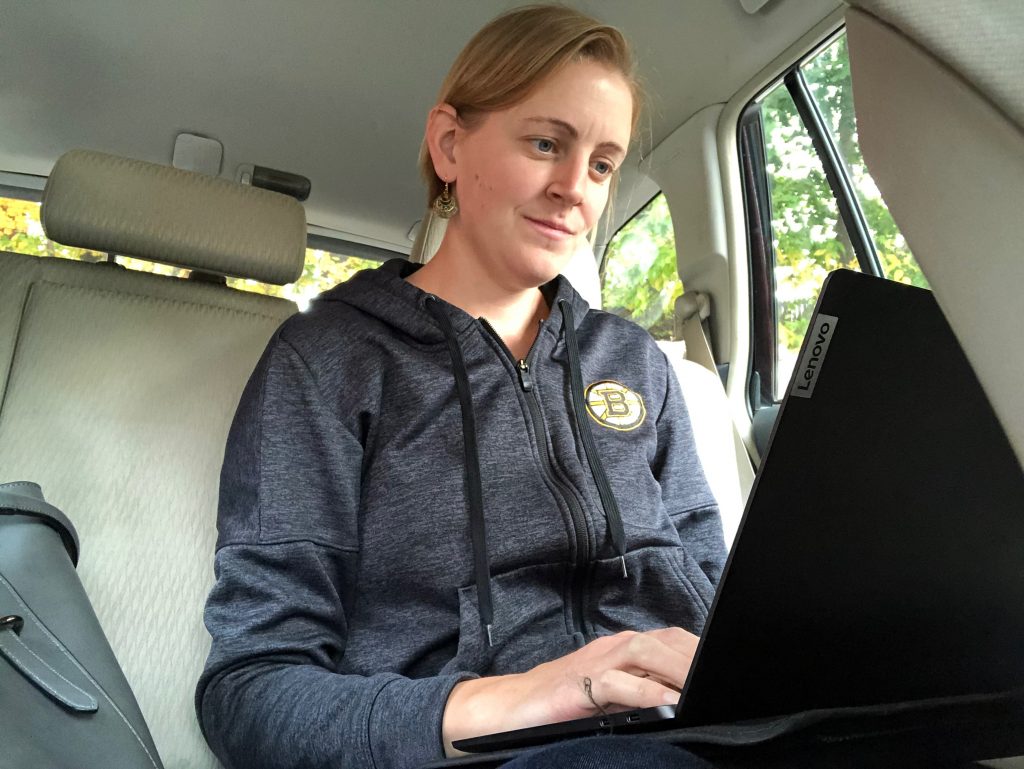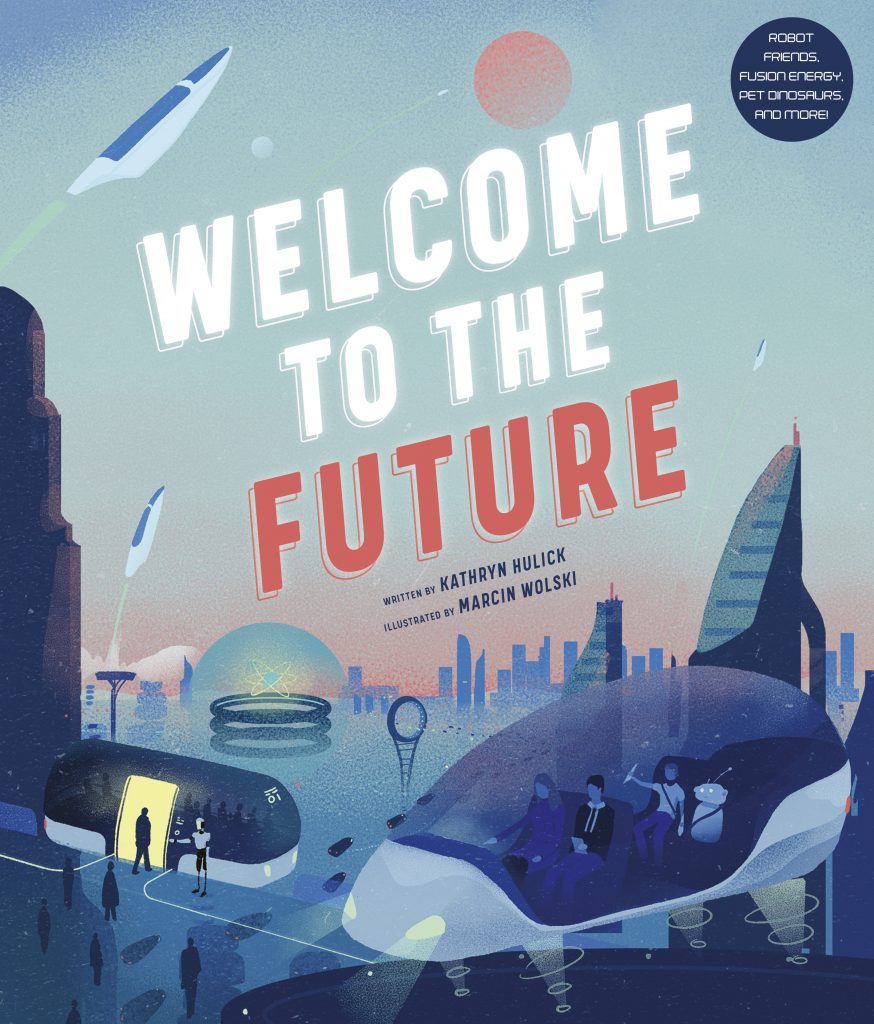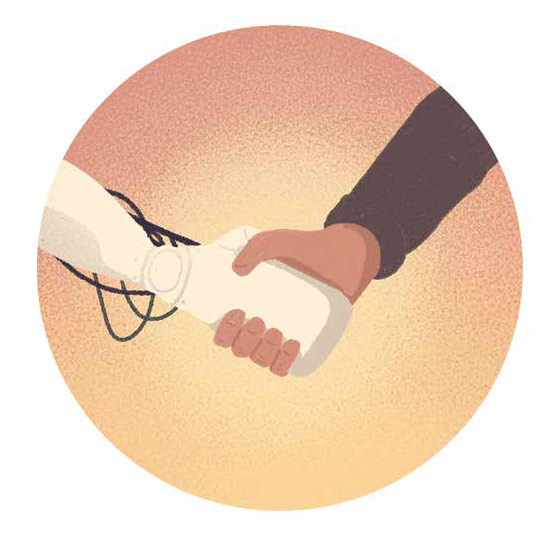Have you ever talked to a rocket scientist or a nuclear physicist?
I have. And it’s so much fun. I have conducted hundreds of interviews. In fact, my very first job as a science writer for Odyssey magazine back in 2007 was to interview a biometrics expert. I was so nervous that I forgot to start my recorder and had to redo the entire interview. Thankfully the expert was patient with me!
Since then, I’ve figured out how to conduct interviews. Getting my technology working properly was only the first challenge. I also had to contend with anxiety over calling people I don’t know and asking questions that might seem silly or obvious to them. Most importantly, I had to learn how to get answers that would make complex topics understandable and engaging for kids.

Now, interviews are my favorite part of my job. I once spoke to an expert on parallel universes while he was snow shoveling his driveway. Another time I interviewed a biologist while he was out in the field watching a herd of elephants. When I had a day job, I used to do interviews from the back seat of my car during my lunch break.
Here are my top 7 tips for a successful interview. For more, I highly recommend this article about investigative reporter John Sawatsky, an interviewing expert.
Interview Tips
1. Prepare ahead of time
Read the relevant books or studies the expert has published. Listen to any other recorded interviews with them. The more you know about their work, the more nuanced questions you can ask. It may feel like you have nothing left to ask after doing all that preparation. If that’s the case, then ask questions you think you already know the answer to. I do this all the time because I want to hear the person say the answer in their own words or confirm that I have understood their work correctly. Often, I’m surprised when they don’t answer how I expected.
2. Ask open-ended questions
“What” “How” and “Why” should be your go-to words. If the question can be answered with “yes” or “no,” your subject might not say anything else.
3. Ask short questions
It may be tempting to show off how much you prepared, but as Sawatsky puts it, “The more information journalists put into questions, the more information sources leave out.”
4. Don’t make statements
You’re doing an interview, not having a conversation. So don’t talk about yourself or comment on the subject’s thoughts or ideas. A little friendly small-talk helps a subject feel comfortable, but too much wastes the expert’s time. The one important exception to this rule: when trying to understand something complicated and technical, I will always restate what the expert said in my own words to make sure I’ve understood and can express the concept correctly.
5. Build on the subject’s answers
No matter how thoroughly I prepare, an interview never stays on course. I always end up asking questions I hadn’t planned and skipping some of the ones I did plan. Follow the subject where they lead. Interviewing in person or over video or a phone call is always preferable to a written interview for this reason. There’s room for spontanaeity.
6. Approach controversial topics with care
Most of my writing covers science for kids and is not very controversial. This book was different. I talked about genetic engineering and human enhancement. I talked about energy inequality and the settlement of space (which I didn’t call colonization, thanks to one expert’s advice). When discussing emotionally fraught topics, asking short questions and avoiding statements becomes even more important. You want your subjects to feel comfortable expressing their views, whatever they may be. You want to avoid any defensiveness or reluctance to share.
7. Relax and listen
This is the most important advice of all. Your main job as the interviewer is not to talk. You are there to LISTEN.
Sample Interviews
For my new book, Welcome to the Future: Robot friends, fusion energy, pet dinosaurs, and more, I conducted 55 interviews! You can read a selection of them on my website: Welcome to the Future: The Interviews
In my interviews, I talked to scientists and engineers who create world-changing technology. I talked to ethicists and activists, who help make sure we use technology in ways that are just and safe and helpful. I visited the robotics lab at WPI and the Media Lab at MIT.
Often, only one or two quotes from an hour-long conversation made it into my book. I didn’t want these illuminating conversations to languish in the virtual dusty filing cabinets of my laptop. I wanted to share them with the world. So I’ve been publishing them on my website.
Welcome to the Future: Robot Friends, Fusion Energy, Pet Dinosaurs, and More!
Preorder from Amazon or Barnes and Noble or Indiebound
Have you ever wondered what the future may look like? In this book, you’ll explore 10 ways technology could alter our way of life. The challenge for you is to decide which changes you want for yourself and the world.

In the future, will we teleport from place to place, keep dinosaurs as pets, or 3D-print our dinner? Will we live on Mars or upload our brains to computers? Could we solve climate change by making all our energy from mini stars we build here on earth? In this book, you’ll meet the scientists working to bring science fiction to life and learn how soon we might have amazing new technology. You’ll also delve deep into questions about right and wrong. Just because we can do something doesn’t mean we should. How can we build the best possible future for everyone on Earth?

